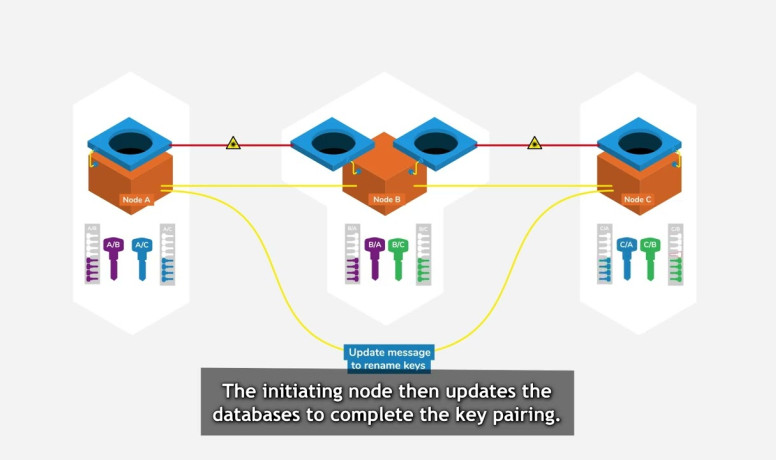How Quantum Key Distribution improves security: call for co-creation
Secure communication is crucial for the research and education sector, where sensitive data and intellectual property are often at stake. The development of quantum computing poses a significant risk to current encryption methods: quantum computers have the potential to break widely used algorithms, rendering traditional security measures inadequate within the next decade. SURF invites its members to explore solutions through co-creation.
Quantum communications & security
Quantum technologies are expected to have a significant impact on the digital infrastructures on which our society depends. While quantum computers are the most obvious and popular manifestation of this trend, quantum communication also plays an important role in the quantum IT landscape. Just as the classical Internet has increased the value of digital computers many times over, we expect the same to happen in the quantum domain. SURF is beginning its journey towards a quantum Internet by deploying a quantum key distribution testbed network.
Quantum Key Distribution (QKD) offers a promising solution by enabling the secure exchange of cryptographic keys through the principles of quantum mechanics. Using this, all eavesdropping attempts can be detected, keeping communications confidential and secure, even in the age of quantum computers.
Introducing the SURF Quantum Key Distribution testbed
In response to these new challenges, SURF is proud to announce the deployment of a Quantum Key Distribution testbed network, specially designed for our members to experiment with. This testbed offers researchers and developers in the Netherlands a unique opportunity to explore innovative applications and use cases of this new quantum technology, facilitating the development of practical solutions to address security issues. It also provides a valuable opportunity for the entire ecosystem to engage with the technology and potentially influence hardware development to adapt to the specific needs of our members.
Explanation of how quantum-safe communication works via Quantum Key Distribution
Contributing to a pan-European quantum communication infrastructure
The deployment of this testbed within the national programme QCINed is part of a broader initiative under the EuroQCI project, aimed at building a pan-European quantum communication infrastructure. By contributing to this project, SURF is positioning itself as a valuable partner in the global effort to secure communications against emerging quantum threats.
Contributing to the quantum ecosystem
The Quantum Key Distribution testbed uses state-of-the-art hardware. The intent is to explore different technologies from multiple vendors and make them interoperable. We aim to release all our software under an open source licence to foster collaboration and innovation within the ecosystem. This allows users to adapt and build on existing solutions, while ensuring transparency and accessibility.
Call for collaboration: exploring new use cases with SURF QKD Testbed
As SURF installs the hardware in its data centres and rolls out the initiative, we look forward to seeing how our members utilise the testbed to explore new use cases and push the boundaries of quantum-safe communication. SURF invites members interested in experimenting with this technology and accessing the testbed to get in touch. These trials will provide valuable insights for building potential large-scale implementations in the future. We look forward to hearing from you!
More information?
For more information, contact David Maier, Advisor Quantum Computing & Quantum Networks.


